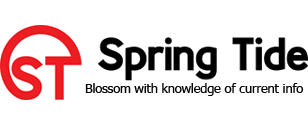
SEO is one of the most important aspects of online marketing. If you are not doing everything you can to optimize your website for search engines, you are losing out on a lot of potential traffic and revenue. In this guide, we will teach you how to optimize your keywords for SEO. We will cover everything from finding the right keywords to using them in your content. So keep reading this guide and visit Tasteful Space to learn more and improve your current strategy.
Audit Current On-Page SEO
 The first step in optimizing your keywords for SEO is to audit your current on-page SEO. This will help you to identify areas where you are not using keywords effectively and give you a good idea of which keywords are already working well for you. There are several different tools that you can use to audit your on-page SEO, but we recommend using Google’s PageSpeed Insights tool. This tool will give you a comprehensive report on your website’s speed and performance and tips on improving both.
The first step in optimizing your keywords for SEO is to audit your current on-page SEO. This will help you to identify areas where you are not using keywords effectively and give you a good idea of which keywords are already working well for you. There are several different tools that you can use to audit your on-page SEO, but we recommend using Google’s PageSpeed Insights tool. This tool will give you a comprehensive report on your website’s speed and performance and tips on improving both.
Map Your Keywords to the Right Pages
Once you have audited your current on-page SEO, it is time to start mapping your keywords to the correct pages. This means you must identify which keywords are most relevant to each page on your website. You can do this using a keyword research tool like Google Keyword Planner or Moz Keyword Explorer. Once you have a list of relevant keywords, you need to start incorporating them into your content.
Avoid Keyword Stuffing
 One of the biggest mistakes people make when optimizing their keywords for SEO is keyword stuffing. This is when you try to cram as many keywords into your content as possible, hoping it will help your website rank high. However, this makes your content challenging to read, and it can hurt your ranking. So instead of stuffing your content with keywords, focus on using them strategically.
One of the biggest mistakes people make when optimizing their keywords for SEO is keyword stuffing. This is when you try to cram as many keywords into your content as possible, hoping it will help your website rank high. However, this makes your content challenging to read, and it can hurt your ranking. So instead of stuffing your content with keywords, focus on using them strategically.
Target Your Audience
 When you are creating content, it is essential to remember who your target audience is. Write for them, not for the search engines. This means that you should start engaging, informative content that uses keywords in a way that sounds natural. If you can do this, you will not only rank higher in the search engines but also attract more readers to your website.
When you are creating content, it is essential to remember who your target audience is. Write for them, not for the search engines. This means that you should start engaging, informative content that uses keywords in a way that sounds natural. If you can do this, you will not only rank higher in the search engines but also attract more readers to your website.
Keyword optimization is an essential part of any SEO strategy. By following the tips in this guide, you can make sure that your website is using keywords effectively and that you are attracting more traffic and revenue. So what are you waiting for? Start optimizing your keywords today.
